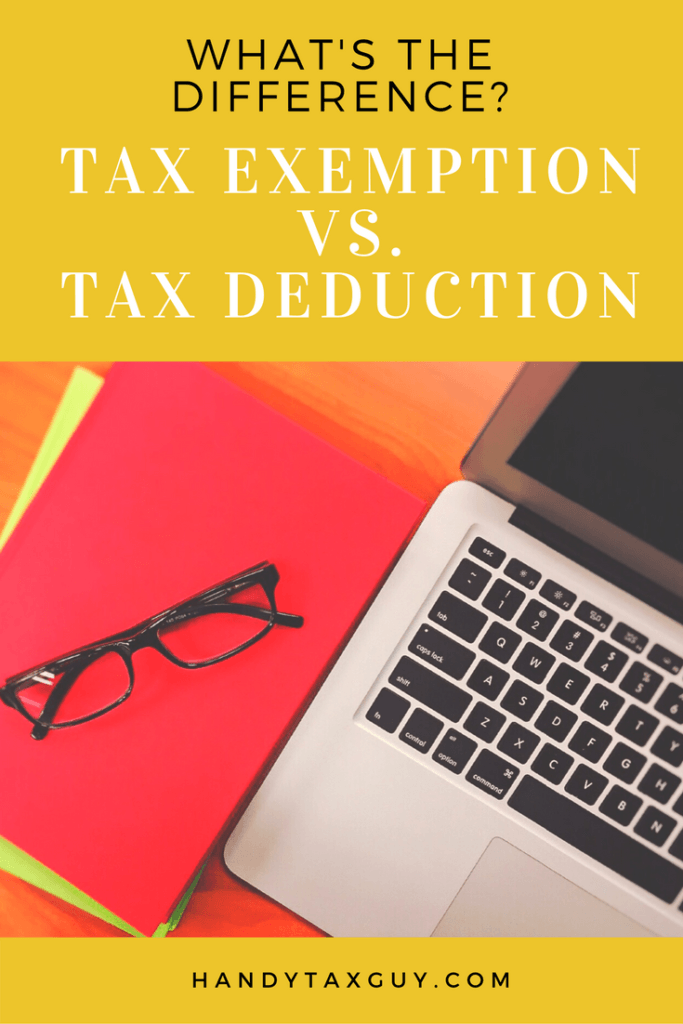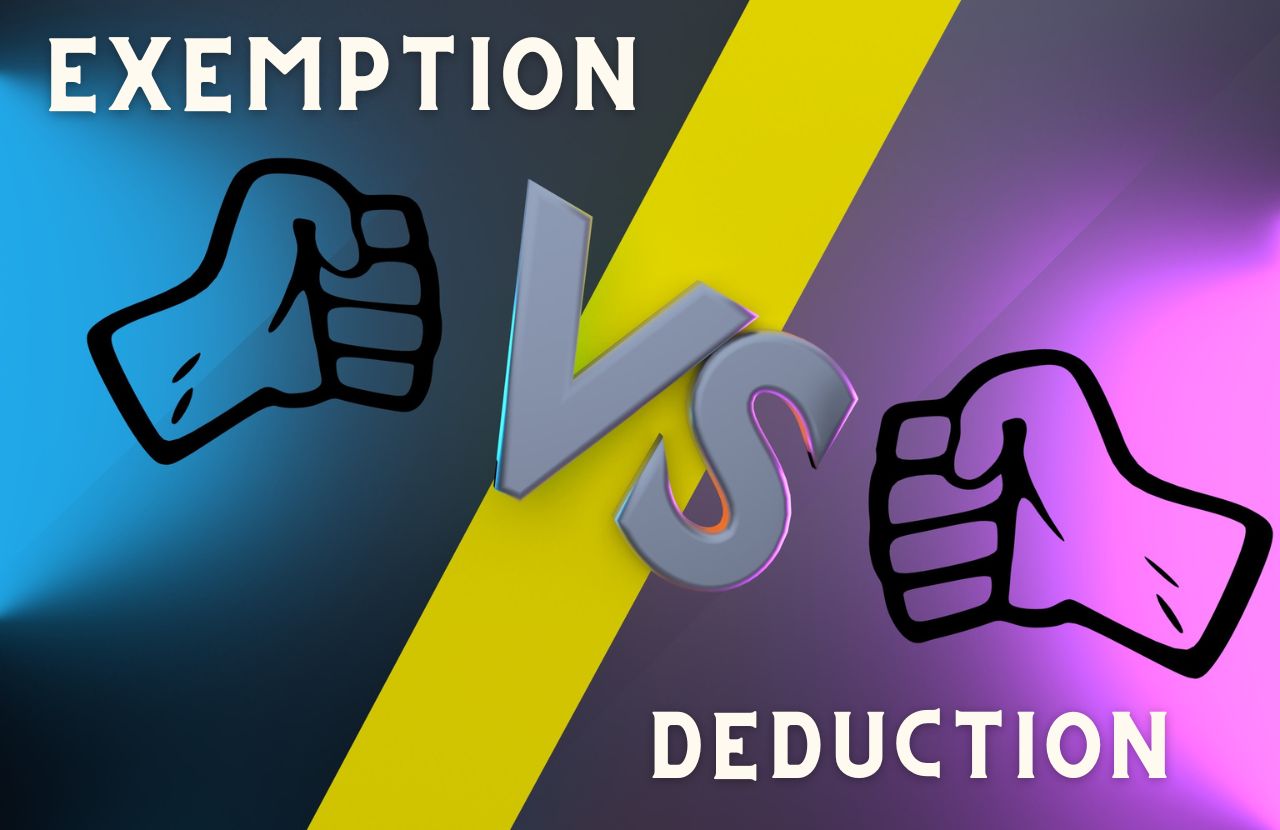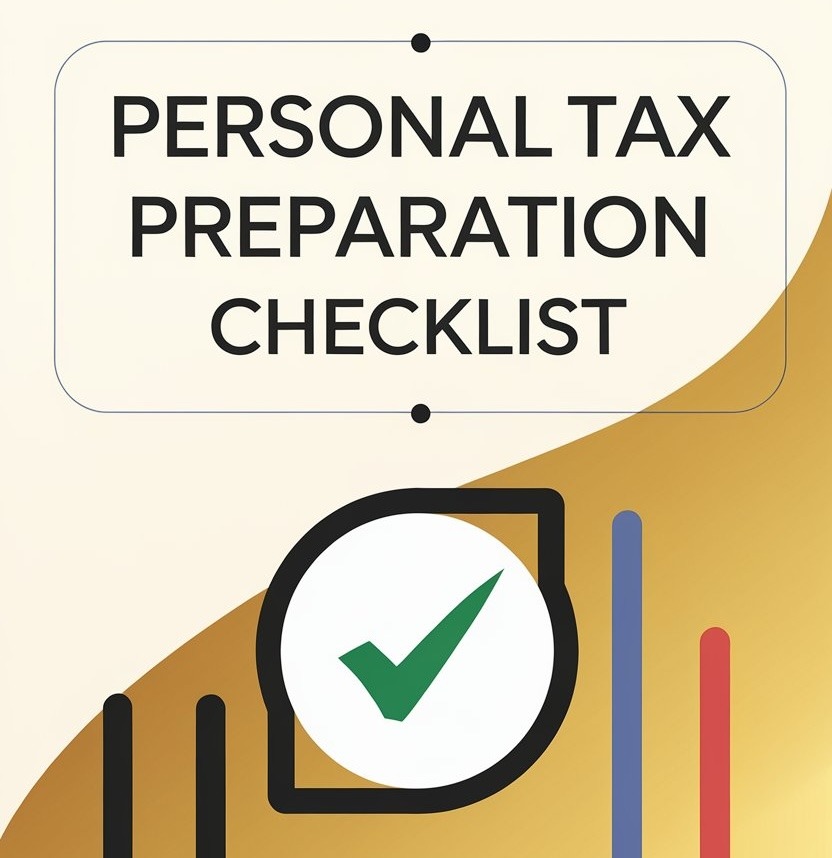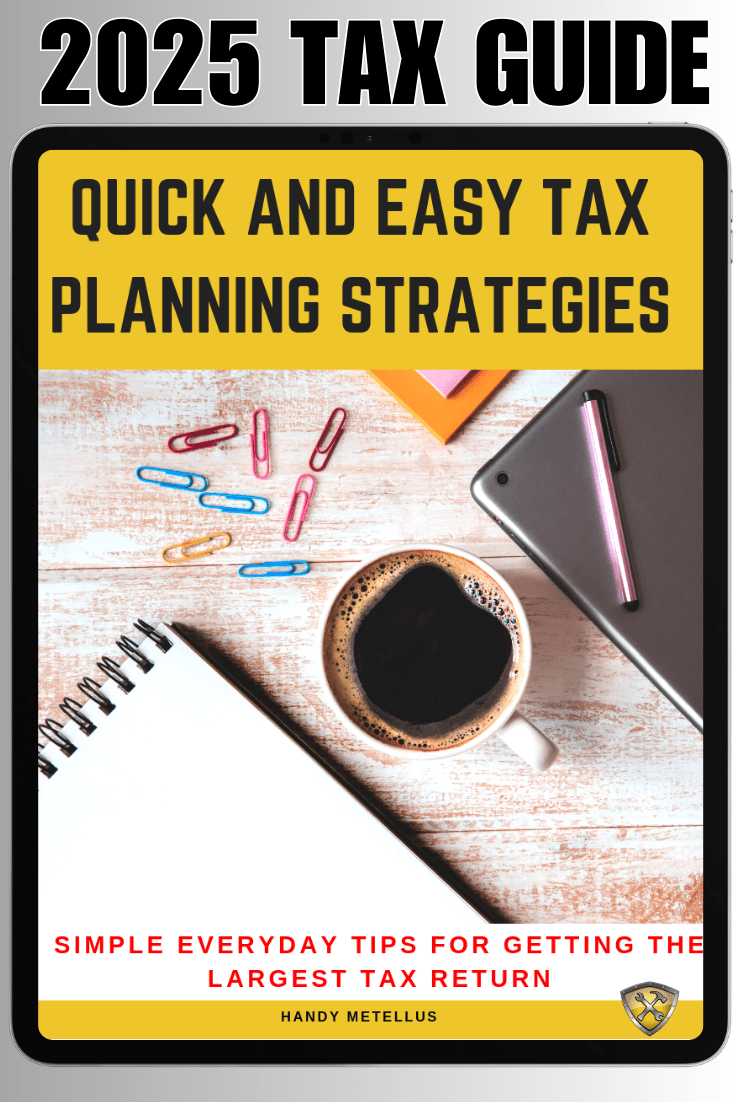Are you ever confused when your tax advisor says “take this exemption” or “let’s use this deduction?”
Don’t worry, you are not alone.
Most taxpayers are not aware of the difference between a tax exemption and a tax deduction. I take pride in teaching you how to achieve financial peace in many different ways and this is one topic I’d love to explain to you.
Now let’s break down the difference between a tax exemption and a tax deduction!
THIS POST MAY CONTAIN AFFILIATE LINKS. PLEASE READ MY DISCLOSURE FOR MORE INFO. This means if you click on any of the links, I’ll receive a small commission.
Difference Between Tax Deduction and Exemption
What is a Tax Exemption?
A tax exemption is a set amount of money that can be deducted from your adjusted gross income, reducing the taxable income.
Exemption amounts are determined by inflation and are generally updated every year. Previously, you could deduct $4,050 for each personal exemption claimed.
NEW ALERT: In 2018 personal exemptions were eliminated; however, the standard deduction is being doubled. Back in 2017, the standard deduction for an individual was $6,350, plus a personal exemption of $4,050. The new reform now combines them into one standard deduction.
Read more about the new tax laws here.
There are four types of exemptions:
- Personal exemptions
- Exemptions for dependents
- Tax exempt organizations
- State/local tax exemptions
For the purpose of this post, we’re going to focus on the first two mentioned.
Each person gets one exemption, but only one taxpayer can claim that exemption. For example, a divorced couple might share joint custody of a child, but only one parent can claim a tax exemption for that child.
Click HERE for the complete tax preparation check list needed for filing your taxes.
Personal Exemption
In the past, you could claim a personal exemption for yourself unless you were another person’s dependent.
If you were married and filed a joint return, you could have claimed an additional personal exemption for your spouse, but your spouse was never considered your dependent for federal income tax purposes.
To have claimed a personal exemption you must have been able to answer “no” to the intake question,
“Can anyone claim you or your spouse on their tax return?”
This applies even if another person does not actually claim you as a dependent.
File Your Taxes with Ease from Home Today with TurboTax!
Exemptions for Dependents
In the past, you could have claimed one exemption for each qualified dependent, thereby reducing the taxable income.
Two types of people qualify as your dependents: “qualifying children” and “qualifying relatives.”
You could’ve usually claimed your natural or adopted children, stepchildren, foster children, siblings, or one of their descendants, provided they are under 19 years old (or under 24 years old if full-time student).
State Tax Exemptions
Many states offer additional exemptions beyond the federal level.
For example, Florida provides a homestead exemption which can exempt up to $50,000 of the assessed value of a primary residence from property taxes.
New York offers a $1,000 exemption for each dependent child. Checking your own state’s tax code can uncover tax-saving exemptions.
What is a Tax Deduction?
A tax deduction works by totaling your deductions and subtracting them from your adjusted gross income or AGI; therefore, reducing your tax bill for the year.
Tax deduction is commonly a result of expenses, particularly those incurred to produce additional income.
Standard Deduction
The standard deduction is a fixed amount set by the IRS that reduces your adjusted gross income. However, it is based on your filing status, which is determined by your marital status as of the end of the year.
2023 Standard Deduction and Personal Exemption
| 2023 Standard Deduction and Personal Exemption (Estimate) | |
| Filing Status | Deduction Amount |
| Single | $13,850 |
| Married Filing Jointly | $27,700 |
| Head of Household | $20,800 |
| Married Filing Separately | $13,850 |
| Personal Exemption | Eliminated |
You can view the Standard Tax Deduction table here.
Itemized Deductions
The IRS lets you decide whether you want to claim the standard deduction or itemize your deductions. Most people choose the standard deduction because it’s easier and may provide a greater deduction.
If your total itemized deductions exceed the amount of your standard deduction, then you’d probably want to go with the itemized deduction option.
You’ll receive a bigger tax break with this option; however, it may be more work on the back end.
Most people like itemized tax deductions because they involve expenses you have to take on anyway, like your mortgage and property taxes.
Common Types of Itemized Deductions:
- Mortgage Interest
- Property Taxes
- Charitable Donations (donating to Goodwill, tithing at church, giving money to non-profit organizations, etc.)
- Medical Expenses
5 Easy Tips to Remember for Your Tax Deduction
- A spouse is never considered the dependent of the other spouse.
- Taxpayers who are divorced or legally separated at the end of the tax year cannot claim their (former) spouse
- Persons who can be claimed as a dependent may file a return for taxes withheld
- If your total itemized deductions exceed the amount of your standard deduction, then go with the itemized deduction option
- The standard deduction is fixed based on your filing status
Key Differences Between Exemptions and Deductions
- Exemptions reduce taxable income unconditionally, while deductions reduce total income conditionally based on meeting eligibility criteria.
- Exemptions are excluded from taxable income, but deductions are subtracted after being included in total income.
- While exemptions reduce taxable income directly, deductions reduce total income, which in turn lowers taxable income.
- Historically, exemptions were fixed amounts per person, while deductions varied based on expenses.
- Exemptions benefitted lower-income families more as they reduced taxable income for all filers equally.
- Deductions provide more benefits to higher-income filers in higher tax brackets.
Let’s Wrap This Up
Visit the IRS for complete deduction vs. exemption information. I hope I was able to provide you with a quick guide to understanding the difference between a tax deduction and a tax exemption.

If you want more handy tax tips, then feel free to check out my latest articles here. You can sign up to get on the waiting list if you’d like to file with me this year.
If you enjoyed this article, then you’ll love these:
- Best Rules for Claiming a Dependent on Your Tax Return
- When and How to Claim Tips on Your Tax Return
- Do I Need to File a Tax Return?
- How to Choose the Best Filing Status
- Top 12 Things You Must Know About the New Tax Law
For more money-saving tips and guides, subscribe to the weekly newsletter!
Until the next money adventure, take care!
Handy

Disclaimer Statement: All data and information provided on this site is for informational purposes only. The Handy Tax Guy makes no absolute representation of the correctness, mistakes, omissions, delays, appropriateness, or legitimacy of any information on this site. **Note: Each client circumstance will vary on a case-by-case basis**
(Original Article Date: September 21, 2015/Updated September 13, 2023)






